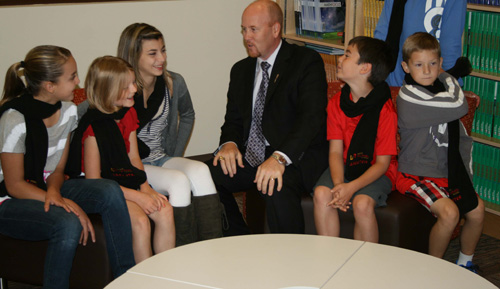
Εκπαίδευση, Καινοτομία, Infrastructure — whichever way you line up the words, they all lead back to education. Because once a nation has goals for where it wants to be in 5 ή 10 ή 20 χρόνια, that nation is going to need to have a competent, competitive workforce to realize its goals.
Developing the nation’s plan means collaboration. And the collaboration part is perhaps the toughest because people tend to argue about significant matters and you will never find enough educators who will agree on the biggest issues — or will you? Ενδιαφέρον, my five interviews over the past 5 weeks in The Education Debate 2012 series with Howard Gardner, Richard Riley, Diane Ravitch, Andy Hargreaves and Linda Darling Hammond often sound similar because there are many commonalities among the solutions proposed for how to improve student achievement in an educational system.
Today I want to focus on a forward thinking education initiative in Alberta, Canada called “Inspiring Education.” I recently had the opportunity to discuss it with the Honourable Jeff Johnson, Minister of Education for Alberta. Johnson’s appointment as Minister of Education in May of this year built on his experience as co-chair of the pioneering “Έμπνευση Εκπαίδευση” committee. He was previously Minister of Infrastructure, Minister responsible for the Oil Sands Secretariat, and Parliamentary Assistant to the Treasury Board. Jeff also has experience working in the financial markets as a futures trading floor pit boss and in building a series of successful small businesses.
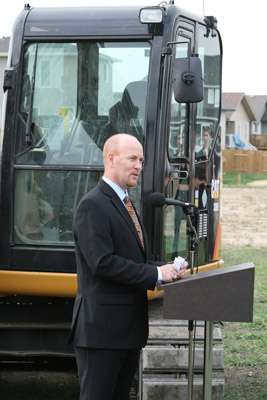
Can you talk about the Albertan “Έμπνευση Εκπαίδευση” πρωτοβουλία – your goals and objectives?
The Education Minister of the day brought together a steering committee of about 20 people, which I chaired, and tasked us with asking Albertans from all walks of life one main question: What kinds of skills and attributes should an educated Albertan graduating in 2030 have? What we heard was that Albertans felt students needed to be three things: engaged thinkers, ethical citizens, and they needed to have an entrepreneurial spirit.
By engaged thinker, we are talking about skills like being able to think critically, being creative, having digital literacy and being cooperative. It also extends beyond our K-12 system, and includes being a true life-long learner.
In terms of the ethical citizen, we want to make sure kids are contributing to their communities. The character traits we require for an ethical citizen would be young people who are empathetic, have good communication skills and who through teamwork and collaboration contribute fully to the community and to the world.
Τελικά, Albertans are really proud of our history of being pioneers and entrepreneurs. The people who immigrated to Alberta were not wealthy people. They came to Alberta for opportunity, and it was that history that really influenced us to include entrepreneurial spirit as the third element of what we call our three E’s. We wanted our kids to learn to take risks, to be resilient, ανταγωνιστικός, resourceful, confident and self-reliant. We wanted to prepare kids for the global economy, for the ever-changing digital age. We wanted to make sure they are ready for the jobs that will be waiting for them, in many cases jobs that don’t even exist yet. And that they are skilled enough so that if the job doesn’t exist, they can create it.
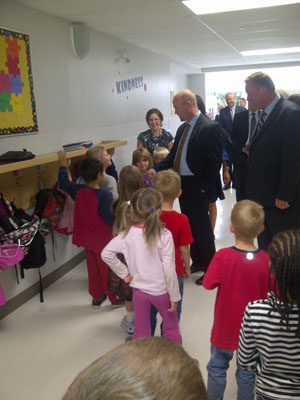
What system changes did these goals require you to make?
Πρώτα, we had to build a system that was more centered on the student. Albertans felt the educational system was too caught up in the old ways – based on the desires of trustees, teachers or politicians instead of on what is best for the students and the students’ μάθηση.
The second major change we felt we should make was to move to a system that was based on competency versus regurgitating content. Every student learns at an individual pace, but our educational system was not set up to deal with that. So the challenge was to move to a system that was based on mastering competency, not just serving a set amount of time in a desk and memorizing facts for a test. When kids can move faster we need to make sure we’re able to challenge them.
The other problem we faced was that our curriculum in Alberta was very standardized and allowed very little flexibility for educators. Much of the content in the curriculum is going to be obsolete in 15 χρόνια από τώρα. We want to move to a system where numeracy and literacy remained at the core of learning, but where educators are teaching in a way that will instill our three E’s in kids.
Are your teachers equipped to handle this shift in orientation?
The need for additional training varies teacher by teacher. I think a lot of the newer teachers coming into the system are ready and willing to embrace this new approach. Some will need professional development, and that is a good thing. It isn’t our intention to turn the system on its head and start a revolution – it is more of an “informed transformation”. We have a good system now, one of the best in the world in fact, so we want to move forward without throwing out the good that we’ve already got.
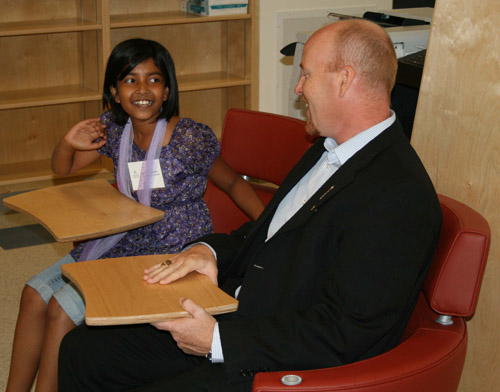
In terms of student assessment do you foresee any changes in your testing practices to accommodate this new orientation?
Curriculum and assessment are obviously inter-related, and both will have to evolve. We currently use standardized tests at four points in a student’s life. We do standardized testing at grades 3, 6 και 9. Then we have the Diploma Exams in Grade 12, which are essentially our entrance exams for post-secondary. Our plan is to focus on the lower grades first and introduce new tools to assess, eventually moving to other grades.
What about class size and special learning needs?
Albertans told us clearly that all kids are special, and we need to make sure we support them all. So we are striving for a system that recognizes the differences in students and is able to challenge every child. It’s going to be different for every child, whether it’s learning difficulties, language barriers or gifted children – or anything else. In Alberta we want inclusiveness for the special needs kids and for the gifted kids. We’re in the process of changing our funding to reflect this too.
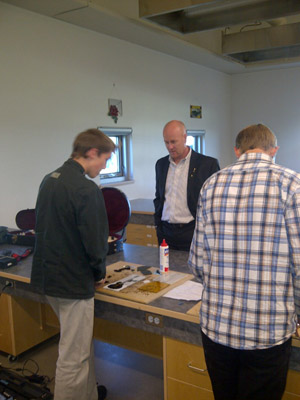
How do you see blended-learning systems and other technology evolving in your school system by 2030?
Technology presents one of the biggest challenges and also one of the biggest areas of opportunity. With the finances that governments and public school systems have, it is impossible to keep the latest greatest technology in the classroom. The technology is just becoming outdated too fast. One of the things we seek to do in our system is ensure that the technology that kids use at home every day becomes part of their learning experience. We’ve got a lot of ‘bring your own device to school’ in terms of kids using their devices as part of their learning. At the core of it, this is not about using technology as a teaching tool, but more about using it as a tool to create knowledge.
What did Albertans tell you about teaching ethics in the classroom, δηλαδή. to tie in with your ethical citizen goal?
There are a couple of points here. Albertans told us they did not want the government or teachers to have to become the parent. Ethics has got to initially come from the home and the family, and it’s different for every family. What we want to instill as part of building ethical citizens are things like honesty and respect. It means that in our schools you’re going to be honest. You’re going to work hard. You’re going to value diversity and respect other people’s differences. Η προσδοκία είναι ότι το σχολικό σύστημα θα διδάξουν αυτά τα πράγματα, επειδή αντιπροσωπεύουν αυτό που είναι σημαντικό ως πολίτης.
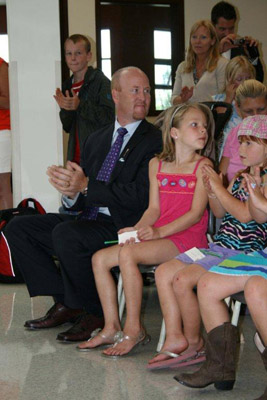
Τι ρόλο θα παίξουν οι τέχνες σε μεταρρυθμίσεις του εκπαιδευτικού συστήματος σας?
You cannot give students 21st century skills such as critical and creative thinking without the arts. If we want kids to be able to think outside the box, αν θέλουμε τα παιδιά να είναι σε θέση να καινοτομούν, θα πρέπει να τους εκθέσουν την τέχνη και τους καλλιτέχνες.
Exposure to the arts fulfills several needs. It obviously helps ensure we maintain our culture and create new artists. Αλλά δεν τελειώνει εκεί. Οι άνθρωποι που έχουν ακονίσει τις καλλιτεχνικές δεξιότητες τους είναι πιο προσεκτικός, and are better able to find problems and find creative solutions. So incorporating the arts is also about making sure we have future business people, επιστήμονες, doctors and engineers too.
What are your views on higher education choices? Do all students need to go on to a liberal arts education? What about vocational colleges?
Post-secondary is about more than just university. Our post-secondary system in Alberta includes lots of choices for young people, including great universities, colleges and technical institutes. Όλα είναι καλές επιλογές, και θα πρέπει να βεβαιωθείτε ότι τα παιδιά βλέπουν την αξία σε όλα αυτά.
Μετά από όλα, γνωρίζουμε ότι μόνο περίπου 17 τοις εκατό των παιδιών μας που αποφοιτούν πηγαίνετε στο παραδοσιακό πανεπιστήμιο. Πολλά από τα υπόλοιπα επιδιώκουν κολέγια και τα τεχνολογικά ιδρύματα, διότι η εκπαίδευση προσφέρει πρόσβαση σε πολύ καλά καταβάλλεται, πολύ ευχάριστο επαγγέλματα.
Not every kid needs or wants a liberal arts degree. There are incredible occupations and success to be had in other channels, και νομίζω ότι πρέπει να γίνουμε καλύτεροι στο να προσφέρει διαφορετικές επιλογές νωρίτερα.
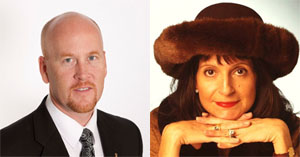
Photos courtesy of Alberta Education.
Στο παγκόσμιο Αναζήτηση για Εκπαίδευση, μαζί μου και παγκοσμίως γνωστή ηγέτες σκέψης συμπεριλαμβανομένου του Sir Michael Κομμωτήριο (Ηνωμένο Βασίλειο), Ο Δρ. Michael Block (ΗΠΑ), Ο Δρ. Leon Botstein (ΗΠΑ), Καθηγητής Clay Christensen (ΗΠΑ), Ο Δρ. Linda Ντάρλινγκ-Hammond (ΗΠΑ), Ο Δρ. Madhav Chavan (Ινδία), Ο καθηγητής Michael Fullan (Καναδάς), Ο καθηγητής Howard Gardner (ΗΠΑ), Ο καθηγητής Andy Hargreaves (ΗΠΑ), Ο καθηγητής Yvonne Hellman (Η Ολλανδία), Ο καθηγητής Kristin Helstad (Νορβηγία), Jean Hendrickson (ΗΠΑ), Καθηγητής Rose Hipkins (Νέα Ζηλανδία), Καθηγητής Cornelia Hoogland (Καναδάς), Η κ. Chantal Kaufmann (Βέλγιο), Ο Δρ. Eija Kauppinen (Φινλανδία), Υφυπουργός Tapio Kosunen (Φινλανδία), Ο καθηγητής Dominique Λαφοντέν (Βέλγιο), Ο καθηγητής Hugh Lauder (Ηνωμένο Βασίλειο), Καθηγητής Ben Levin (Καναδάς), Lord Ken Macdonald (Ηνωμένο Βασίλειο), Καθηγητής Barry McGaw (Αυστραλία), Shiv Nadar (Ινδία), Καθηγητής R. Natarajan (Ινδία), Ο Δρ. PAK NG (Σιγκαπούρη), Ο Δρ. Denise Πάπα (ΗΠΑ), Sridhar Rajagopalan (Ινδία), Ο Δρ. Diane Ravitch (ΗΠΑ), Richard Wilson Riley (ΗΠΑ), Sir Ken Robinson (Ηνωμένο Βασίλειο), Καθηγητής Pasi Sahlberg (Φινλανδία), Andreas Schleicher (PISA, ΟΟΣΑ), Ο Δρ. Anthony Seldon (Ηνωμένο Βασίλειο), Ο Δρ. David Shaffer (ΗΠΑ), Ο Δρ. Kirsten Μοναδική Are (Νορβηγία), Στήβεν Spahn (ΗΠΑ), Yves Theze (Lycee Francais Η.Π.Α.), Ο καθηγητής Charles Ungerleider (Καναδάς), Ο καθηγητής Tony Wagner (ΗΠΑ), Sir David Watson (Ηνωμένο Βασίλειο), Καθηγητής Dylan Γουίλιαμ (Ηνωμένο Βασίλειο), Ο Δρ. Mark Wormald (Ηνωμένο Βασίλειο), Ο καθηγητής Theo Wubbels (Η Ολλανδία), Ο καθηγητής Michael Young (Ηνωμένο Βασίλειο), και ο καθηγητής Minxuan Zhang (Κίνα) καθώς εξερευνούν τα μεγάλα ζητήματα της εκπαίδευσης εικόνα που όλα τα έθνη αντιμετωπίζουν σήμερα. Η Παγκόσμια αναζήτηση για την Εκπαίδευση της Κοινότητας Σελίδα
C. M. Rubin είναι ο συγγραφέας των δύο πολυδιαβασμένα online σειρά για την οποία έλαβε ένα 2011 Βραβείο Upton Sinclair, “Η Σφαιρική Αναζήτηση για Εκπαίδευση” και “Πώς θα μας Διαβάστε?” Είναι επίσης ο συγγραφέας του μπεστ σέλερ τρία βιβλία, Συμπεριλαμβανομένων Η Ρεάλ Αλίκη στη Χώρα των Θαυμάτων.
Ακολουθήστε C. M. Rubin στο Twitter: www.twitter.com/@cmrubinworld


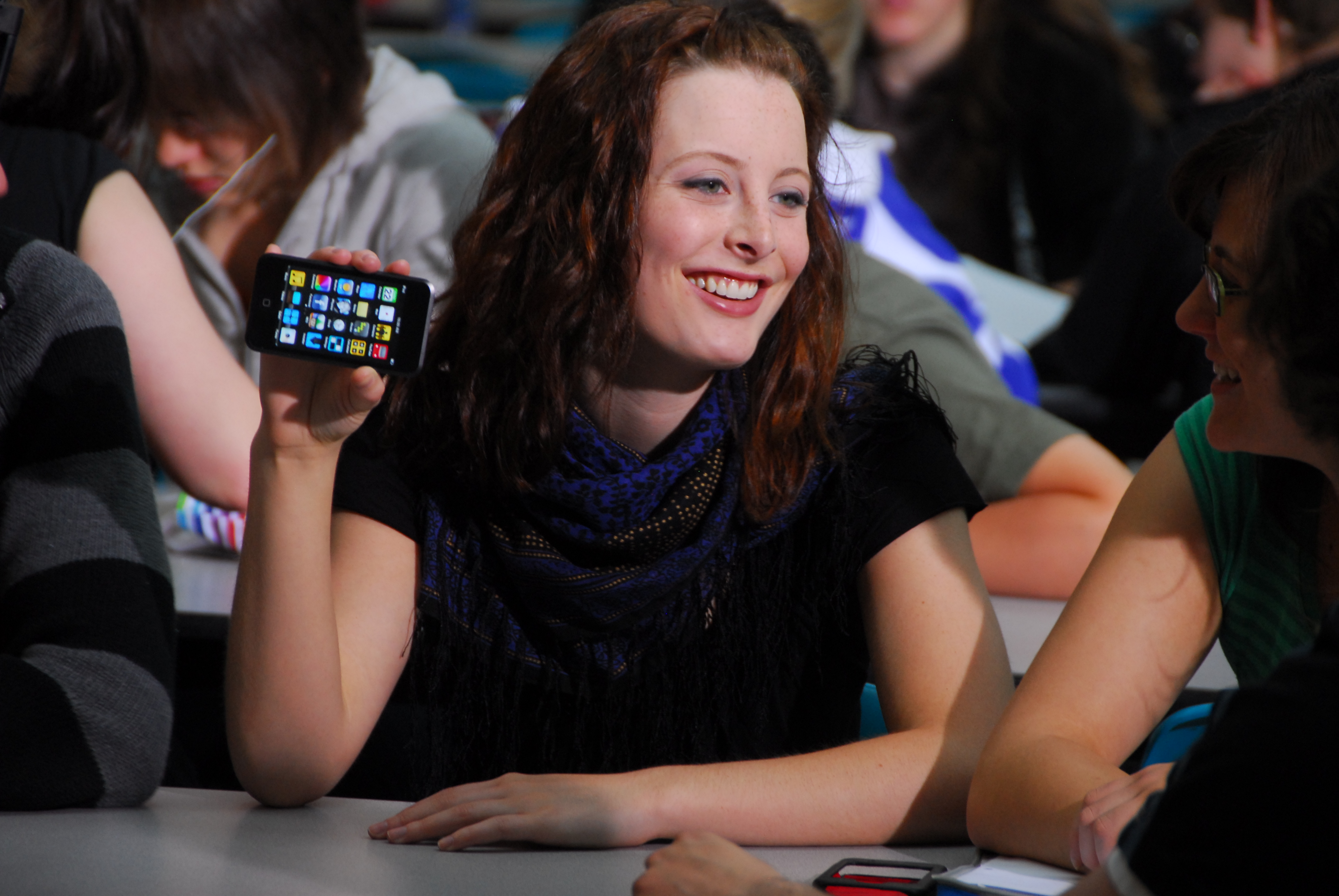

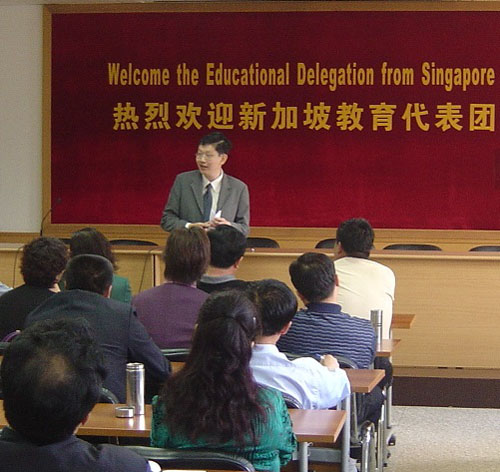
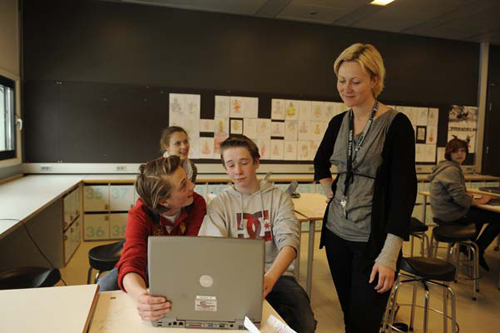
Πρόσφατα σχόλια